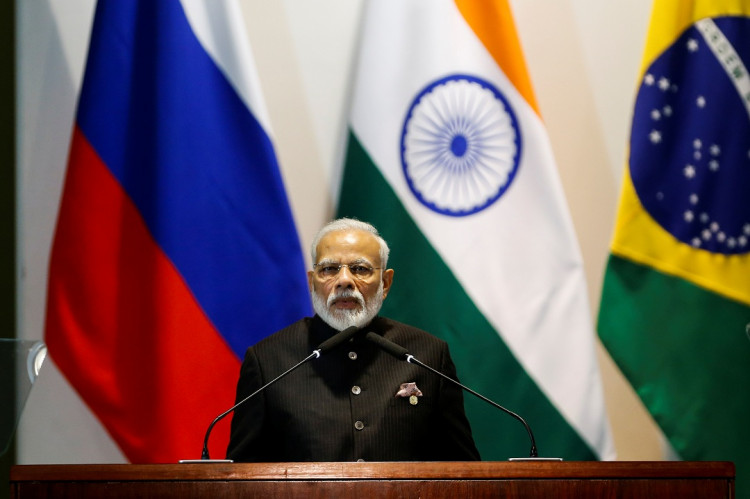Prime Minister Narendra Modi's government on Monday announced rules to implement a 2019 citizenship law that excludes Muslims, just weeks before the Hindu nationalist leader seeks a rare third term in office. The Citizenship Amendment Act (CAA) provides a fast track to naturalization for Hindus, Parsis, Sikhs, Buddhists, Jains, and Christians who fled to Hindu-majority India from Afghanistan, Bangladesh, and Pakistan before December 31, 2014, but excludes Muslims, who are a majority in all three nations.
The law, approved by the Indian Parliament in 2019, sparked deadly protests in the capital New Delhi and elsewhere, with scores killed during days of clashes. Modi's government had held off on implementing the law until now, as the nationwide protests drew people of all faiths who argued that the law undermines India's foundation as a secular nation. Muslims, in particular, were worried that the government could use the law, combined with a proposed national register of citizens, to marginalize them.
Home Minister Amit Shah, in a post on X (formerly Twitter), defended the CAA, stating that it "will now enable minorities persecuted on religious grounds in Pakistan, Bangladesh and Afghanistan to acquire citizenship in our nation." The Modi government has maintained that the law is a humanitarian gesture meant only to extend citizenship to religious minorities fleeing persecution and would not be used against Indian citizens.
However, critics, including the main opposition Congress party, have questioned the timing of the announcement, with a spokesperson stating that it is "evidently designed to polarise the elections." Human rights watchdog Amnesty India called the law "discriminatory" and said it "goes against the constitutional values of equality and international human rights law," legitimizing "discrimination based on religion" and being "exclusionary in its structure and intent."
India is home to 200 million Muslims, making up a large minority group in the country of more than 1.4 billion people. Under Modi's rule, critics say that Muslims have been targeted in a series of attacks, and the Prime Minister's silence over anti-Muslim violence has emboldened some of his most extreme supporters, enabling more hate speech against the community.
Modi, who has increasingly mixed religion with politics in a formula that resonates deeply with India's majority Hindu population, opened a Hindu temple in January at the site of a demolished mosque in the northern city of Ayodhya, fulfilling his party's long-held Hindu nationalist pledge. This move, along with the implementation of the CAA, has raised concerns about the erosion of India's secular and democratic founding ethos.
The BJP, which has its roots in India's Hindu right-wing movement, has been accused of pushing an agenda of Hindu nationalism onto secular India at the expense of the Muslim population. Critics argue that since Modi's rise to power nearly a decade ago, minorities have felt persecuted under the BJP's majoritarian policies, and any criticism of the government faces censorship and punishment.
The announcement of the CAA's implementation comes on the heels of two mosque demolitions in Uttarakhand state and Delhi within days of each other, leading to clashes and local curfews. These incidents have further heightened tensions between the Hindu majority and Muslim minority in India.
As the country gears up for the general election scheduled to be held by May, most poll surveys suggest that Modi will win a majority. The implementation of the controversial Citizenship Amendment Act is likely to be a polarizing issue during the campaign, with critics viewing it as another example of the BJP's Hindu nationalist agenda and supporters seeing it as a fulfillment of the government's promise to protect persecuted religious minorities.




